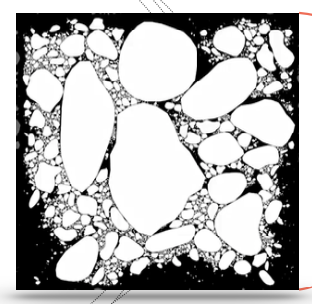| | SASIP Newsletter EGU special edition April 2024 |
|
|
|
|
|
|
|
|
|  | | Follow Us | | | | | | EGU SASIP highlights | The EGU General Assembly 2024 will be held in Vienna, Austria, from April 14 to 19, 2024. It will brings together geoscientists from all over the world to one meeting covering all disciplines of the Earth, planetary, and space sciences. SASIP’s latest research in ice-ocean interactions (WP3) and data assimilation (WP4) will be presented. Below are the days/time of the presentations (all times are in CEST). | | A Novel Process Model of Ocean-Sea-Ice Interaction Using CESM by Paul Hall et al., poster session, 16:15 - 18:00, Hall X4. | | A data-driven sea-ice model with generative deep learning by Tobias Sebastian Finn, Charlotte Durand et al., oral session, 11:05 - 11:15, room 1.34. | | | | | Replacing parametrisations of melt ponds on sea ice with machine learning emulators by Simon Driscoll, Alberto Carrassi, et al., Oral session, 09:55 - 10:05, room N2. | | SASIP News | Nicolas Mokus, Postdoc at CNRS working on sea-ice rheology (WP2), tells us about his fieldwork on seasonal ice in embayments of the St. Lawrence Estuary, Québec | “Over three weeks in February-March, I joined fieldwork led by members of the PMMH (Paris) in collaboration with UQAR (Rimouski), on seasonal ice in embayments of the St. Lawrence Estuary, Québec. We deployed geophones, wave buoys, and phones on the ice, and flew drones equipped with video cameras, to measure wave propagation underneath the ice as well as the mechanical properties of the ice. We were able to capture several wave-driven fracture events, and experiments with artificial ship-generated waves were also conducted. Our aim is a better understanding of the wave--ice interactions, as well as extracting datasets that can be used for comparisons with numerical models”. |  | Missed our last webinar on particle-based algorithms for stochastic optimal control? You can watch it here! |  | Still time to register for our next webinar with Tobias Finn on April 24, 3pm CET | Surrogate modelling of sea-ice models offers an opportunity to improve their computational performance, however, deterministic surrogates tend to loose small-scale information and can result in physically inconsistent trajectories. In this webinar, showcased on neXtSIM simulations, Tobias will offer insights into how generative deep learning, popularized for image generation, can solve such issues and improve the physical consistency, thereby exceeding the performance of deterministic surrogates. |
| |
|
|
|
|
|
|
|
| | |
|
|
|
|
|









